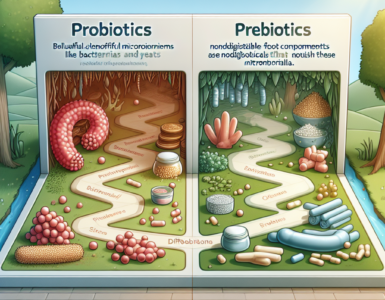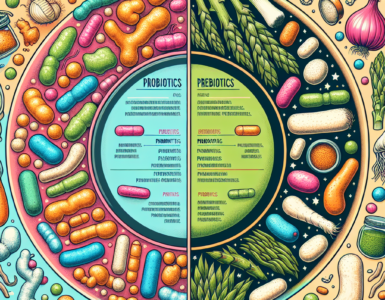The concept of gratitude has been around for centuries, yet its importance in enhancing well-being has recently gained significant attention from researchers and psychologists. Understanding the power of gratitude requires a closer look at its definition, origin, and cultural significance. Let’s dive deeper into the reasons why gratitude is such a potent tool for promoting positive mental health and improved well-being.
Understanding Gratitude
Gratitude is a complex and multifaceted emotion that involves acknowledging the positive things in our lives, including both the big and small moments. It involves recognizing and appreciating the good things that we receive, whether they come from another person, the world, or a higher power.
Gratitude can be expressed in many different ways. For some, it may involve writing a thank-you note to someone who has done something kind for them. For others, it may involve taking a moment to reflect on the good things in their lives and expressing gratitude internally. Whatever form it takes, gratitude has been shown to have a powerful impact on our well-being and happiness.
Defining Gratitude
The Oxford English dictionary defines gratitude as “The quality of being thankful; readiness to show appreciation for and to return kindness.” However, gratitude is more than just saying “thank you.” It involves a deeper sense of appreciation for the positive things in our lives and the recognition of the effort that others put in to bring those things into our lives.
Gratitude is not just about being thankful for the good things that happen to us. It’s also about recognizing the challenges and difficulties that we face and finding ways to be grateful for the lessons that we learn from those experiences. By shifting our focus to the positive aspects of our lives, we can cultivate a sense of gratitude that can help us to navigate even the most challenging of situations.
The Origins of Gratitude
The origins of gratitude date back to ancient philosophy and religious teachings, including Buddhism and Stoicism. These traditions emphasized the importance of cultivating positive emotions and finding ways to appreciate the good things in our lives, even in the face of adversity.
Today, gratitude is a central component of many spiritual practices and a focus on daily mindfulness exercises. Its importance in cultivating positive emotions has made it a focus of research in modern psychology. Studies have shown that practicing gratitude on a regular basis can lead to increased happiness, improved relationships, and better overall health and well-being.
Gratitude in Different Cultures
Gratitude is not only a universal human emotion, but it also has a unique cultural component. In some cultures, gratitude is seen as a social norm and a way of showing respect and reciprocity. For instance, in Japan, the concept of “giri” involves a sense of obligation and indebtedness to others, making gratitude an essential part of everyday life.
In other cultures, such as the United States, gratitude is often associated with holidays such as Thanksgiving. During this time, people come together to share a meal and express their gratitude for the blessings in their lives. However, gratitude is not limited to one specific time or place. It can be practiced at any time and in any culture, and can have a profound impact on our lives and well-being.
In conclusion, gratitude is a powerful emotion that can help us to appreciate the good things in our lives and navigate even the most challenging of situations. By practicing gratitude on a regular basis, we can cultivate a sense of well-being and happiness that can have a positive impact on every aspect of our lives.
The Science Behind Gratitude and Well-being
The benefits of practicing gratitude have been well-documented by research. Multiple studies have shown a positive correlation between gratitude and mental health and overall well-being. But what is it about gratitude that makes it so powerful?
The Role of Gratitude in Positive Psychology
Positive psychology is an area of psychology that focuses on optimizing human flourishing and well-being. Gratitude is a key aspect of this field, as it has been shown to increase positive emotions, reduce stress, and improve overall life satisfaction. The practice of gratitude involves focusing on the good things in our lives and expressing appreciation for them. By doing so, we shift our attention away from negative thoughts and feelings and towards positive ones.
Research has shown that people who regularly practice gratitude experience a wide range of benefits, including increased happiness, improved relationships, and a greater sense of purpose in life. In fact, one study found that participants who wrote letters of gratitude to someone else experienced a significant increase in happiness that lasted for up to a month after the exercise.
Neurological Effects of Gratitude
Recent studies have shown that practicing gratitude can change the way our brains process information. Gratitude stimulates the production of dopamine, a neurotransmitter that plays a key role in positive motivation, reward, and pleasure. This increased production of dopamine leads to a more positive attitude and increased feelings of happiness and joy.
In addition to dopamine, gratitude also activates the brain’s hypothalamus, which regulates stress levels and the release of cortisol, a hormone that is associated with stress. By reducing cortisol levels, gratitude can help to alleviate symptoms of anxiety and depression.
Gratitude and Physical Health
Practicing gratitude has also been linked to physical health benefits, including lower blood pressure, improved immune function, and better sleep quality. Increased feelings of happiness and positivity resulting from gratitude can lead to better lifestyle choices, such as exercising more and eating a healthier diet.
Research has also shown that people who practice gratitude are more likely to engage in behaviors that promote good health, such as getting regular check-ups and avoiding risky behaviors like smoking and excessive drinking.
In conclusion, the science behind gratitude is clear: practicing gratitude can have a profound impact on our mental and physical well-being. By focusing on the good things in our lives and expressing appreciation for them, we can increase our happiness, reduce stress, and improve our overall quality of life.
Benefits of Practicing Gratitude
The benefits of practicing gratitude are far-reaching, touching all areas of life. In addition to the benefits already mentioned, there are many other ways in which gratitude can enhance our lives.
Improved Physical Health
Research has shown that practicing gratitude can have a positive impact on physical health. Grateful people tend to take better care of themselves, engaging in activities like exercise and healthy eating. Gratitude can also boost the immune system and improve sleep quality.
Increased Empathy
Gratitude has been linked to increased empathy and reduced aggression. When we are grateful for the kindness of others, we are more likely to extend kindness to others in return. This can lead to more harmonious relationships and a more compassionate society.
Greater Sense of Purpose
Practicing gratitude can help us to identify and appreciate the things that truly matter in life. This can lead to a greater sense of purpose and direction, as we focus on the things that bring us joy and fulfillment.
Improved Self-Esteem
Gratitude can also boost self-esteem and self-worth. When we focus on the good things in our lives and express gratitude for them, we are more likely to feel confident and capable in other areas of our lives.
Increased Creativity
Gratitude has been linked to increased creativity. When we are grateful for the world around us, we may be more likely to notice the beauty and wonder in everyday things. This can inspire us to think outside the box and come up with new and innovative ideas.
Reduced Materialism
Practicing gratitude can also help us to reduce our focus on material possessions. When we are grateful for the non-material things in our lives, like our relationships and experiences, we are less likely to place importance on acquiring more things.
Conclusion
As you can see, the benefits of practicing gratitude are numerous and varied. By cultivating a sense of gratitude in our lives, we can improve our mental and physical health, enhance our relationships, and increase our overall satisfaction with life. So take a few moments each day to reflect on the good things in your life, and express gratitude for them. Your mind and body will thank you.
How to Cultivate Gratitude in Your Life
Gratitude is a powerful emotion that can bring many benefits to our lives. It can improve our relationships, increase our happiness, and even boost our physical health. Now that we have seen the many benefits of gratitude, let’s explore some practical ways to cultivate it in our everyday lives.
Keeping a Gratitude Journal
Writing down the things we are grateful for can increase our sense of appreciation and happiness. Keeping a daily or weekly journal is a simple yet powerful way to cultivate gratitude in our lives. Take some time each day to reflect on the things you are grateful for and write them down in your journal. This practice can help you to focus on the positive aspects of your life and increase your overall sense of well-being.
You can also take your gratitude journaling to the next level by adding in some detail. Instead of just writing down that you are grateful for your family, take the time to write about why you are grateful for them. Maybe it’s because they always support you, make you laugh, or inspire you to be a better person. By adding in this extra detail, you will deepen your sense of gratitude and appreciation.
Gratitude Meditation and Mindfulness
Practicing mindfulness can help us to focus on the present moment and cultivate a sense of gratitude for what we have in our lives. Mindfulness practices such as meditation, deep breathing, and mindful awareness can be extremely beneficial in promoting gratitude. Take some time each day to practice mindfulness and focus on the things you are grateful for. You can do this by simply taking a few deep breaths and reflecting on the positive aspects of your life.
You can also try a gratitude meditation. Find a quiet place to sit and close your eyes. Take a few deep breaths and then start to focus on the things you are grateful for. Visualize these things in your mind and feel the gratitude in your heart. This practice can help you to cultivate a deep sense of gratitude and appreciation.
Expressing Gratitude to Others
When we express gratitude to others, we not only show our appreciation but also foster positive feelings in our relationships. Expressing gratitude can be as simple as saying thank you, giving a compliment, or writing a thank you note. Take some time each day to express gratitude to the people in your life. This practice can help you to deepen your relationships and increase your overall sense of well-being.
You can also take your gratitude expressions to the next level by being specific. Instead of just saying thank you, take the time to explain why you are grateful. Maybe someone helped you out when you were feeling down, or they went out of their way to do something kind for you. By being specific, you will deepen your connection with others and increase your own sense of gratitude.
Creating Gratitude Rituals
Creating ritual practices can make gratitude a habit in our daily lives. Some examples of gratitude rituals may include a daily gratitude walk, evening reflection on three things, or a gratitude jar where we write down things we are thankful for throughout the year. Find a gratitude ritual that works for you and make it a part of your daily routine.
You can also get creative with your gratitude rituals. Maybe you want to start a gratitude journal club with your friends, or create a gratitude altar in your home. The possibilities are endless, and by creating a ritual around gratitude, you will deepen your sense of appreciation and increase your overall happiness.
By incorporating these practical strategies into your life, you can cultivate a deep sense of gratitude and appreciation. Take some time each day to focus on the positive aspects of your life and express gratitude to the people around you. With practice, gratitude can become a habit that brings many benefits to your life.
Conclusion
Gratitude is a powerful tool that can enhance our mental, emotional, and physical well-being. Its benefits have been well-documented by science, and it has a rich history in religious and cultural teachings. By practicing gratitude in our daily lives, we can cultivate greater happiness, resilience, and a more positive outlook on life.











